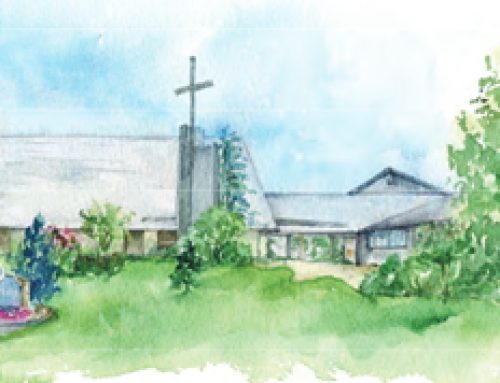FROM THE PASTOR’S DESK
My Dear Parishioners:
Today’s second reading from Paul’s first letter to the Corinthians might be the most radical and challenging passage of the New Testament. It presents to us a fundamentally different way of us seeing ourselves. The normal way that we see ourselves is as individuals, individuals with rights and responsibilities. As individuals, if we choose to connect ourselves to other people, we can do so. If we choose to remain aloof, we can do that as well. But what Paul gives us in the second reading is a very different understanding. He certainly sees us as individuals, but he insists that as individuals, we are part of a larger reality. We form with others an organism. Together with others, we are the body of Christ.
As Paul says it, “You are the body of Christ. Each of you is a member of it.” Paul is saying that at the very level of our being we are connected to others as part of Christ’s body. That connection is necessary, because without that connection, we are incomplete. As Christ’s body we need others to be parts with us in the same reality. Paul plays this out later in the letter where he says that as part of Christ’s body, the head cannot say to the feet, “I do not need you.” The eye cannot say to the hand, “I do not need you.” We need one another because we share the same life. It is only in our relationship to others that we discover who we truly are.
Now, if we were to accept this challenging understanding of ourselves and others, it would change the way we see everything, both socially and personally. As a country we seek to address issues of poverty and education. When we approach that effort as a part of Christ’s body, we are no longer trying to feed or educate “those” people, “those” children. We are trying to feed and to educate people who are a part of us, who live with us as the same body. As we try to provide adequate health care for our nation, understanding the truth of the body of Christ makes it clear that we are providing healthcare for ourselves, because we share the same life in the body of Christ. The same truth applies to us, personally, in our relationships with the people with whom we work, the people in our family, the people in our neighborhood. We cannot say to any of them “I have no need of you. You are of no value to me.” Each person is a part with us in the same living organism.
So, look at the person at work who makes you angry, or the person in your family who irritates you, or the person who exhausts you. The teaching of Paul encourages us to see that person as somehow necessary to us, necessary for us to be the person we are, and to become the person Christ wants us to be.
Now, we cannot approach this teaching naively. There are people who are dishonest and hurtful and even dangerous. We must, at times, wisely decide to establish boundaries and to keep certain people away. But even as we keep them away, in faith we still believe they are a part of us, connected to us.
The teaching that we hear today in the second reading is not a simple or easy truth, but Christ did not come into this world simply to confirm all the truths which were established before he arrived. Christ came into this world to present us with a new and challenging vision of ourselves and of others. It is not new to say that we need others. But it is new to say that we need every other, because every other is a part with us in the same body. And this body is not the body practical, or the body political, or the body commercial. It is the Body of Christ.
Peace,
Fr. Monteleone
To read complete bulletin click here



